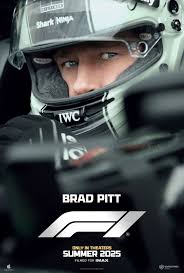The Rise of the F1 Movie: Formula 1’s Cinematic Impact

Introduction: The Intersection of F1 and Cinema
The Formula 1 motor racing series has captivated millions of fans worldwide, serving not only as a sporting spectacle but also as a cultural phenomenon. Recently, the trend of producing films centred around Formula 1 has surged, highlighting the fast-paced world of racing to wider audiences. The significance of F1 movies lies in their ability to encapsulate the thrill, drama, and technical prowess of the sport, thereby elevating the profile of motorsport in mainstream media.
Recent Developments in F1 Filmmaking
The release of films such as “Rush” (2013) and “Ford v Ferrari” (2019) marked pivotal moments in the portrayal of motorsport on the big screen, blending real-life historical narratives with dramatic storytelling. “Rush” focused on the fierce rivalry between James Hunt and Niki Lauda during the 1976 F1 season, drawing attention to the risks and rewards associated with racing. Meanwhile, “Ford v Ferrari” showcased the development of the Ford GT40 for the 1966 Le Mans, capturing the essence of innovation and competitive spirit inherent in race culture.
As F1 continues to grow in popularity, more filmmakers are exploring stories within the sport. Notably, Netflix’s 2019 documentary series “Formula 1: Drive to Survive” has contributed significantly to the revitalisation of interest in F1, paving the way for future cinematic explorations of the sport. The series provides an in-depth look at the personalities and politics of Formula 1, making it accessible to both die-hard fans and newcomers alike.
The Cultural Impact of F1 Movies
F1 movies not only entertain but also educate audiences about the sport. They highlight the intricacies of racing, the technology behind the cars, and the strategies teams employ during races. This has led to a growing awareness and appreciation for motorsport, especially among younger demographics who may not have prior knowledge of the sport. Furthermore, the films often delve into the personal journeys of drivers, connecting with viewers on an emotional level and elevating them beyond mere athletes.
Conclusion: The Future of F1 in Film
As the connections between Formula 1 and cinema strengthen, the future looks bright for F1 movies. With the advent of advanced filming techniques and a growing industry interest, audiences can expect more thrilling narratives that explore the highs and lows of racing. The continued success of Formula 1 in film can serve as a springboard for introducing new fans to the sport while celebrating its storied history. For readers and viewers, the allure of high-speed drama awaits as the wheels of the F1 movie industry keep turning.









